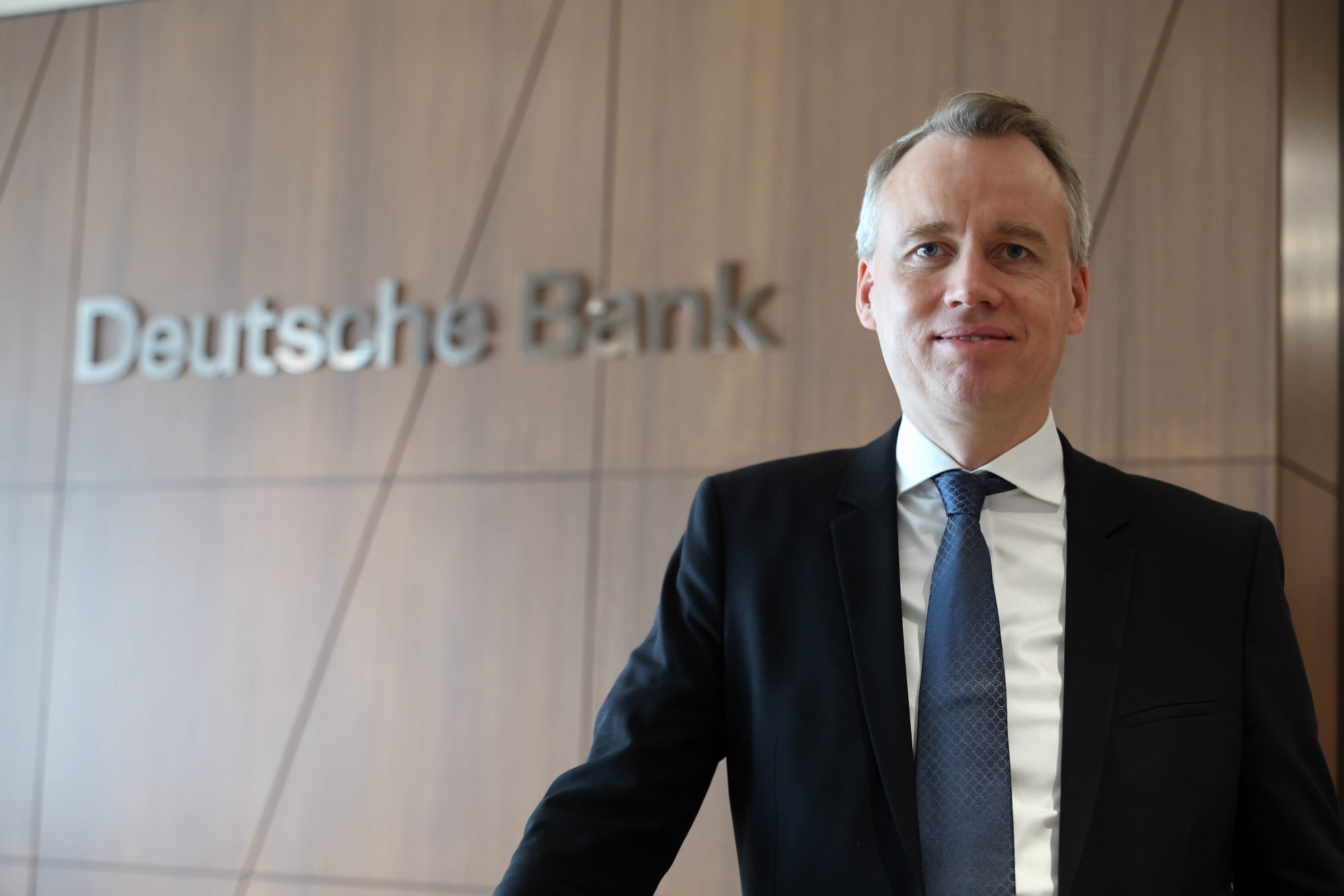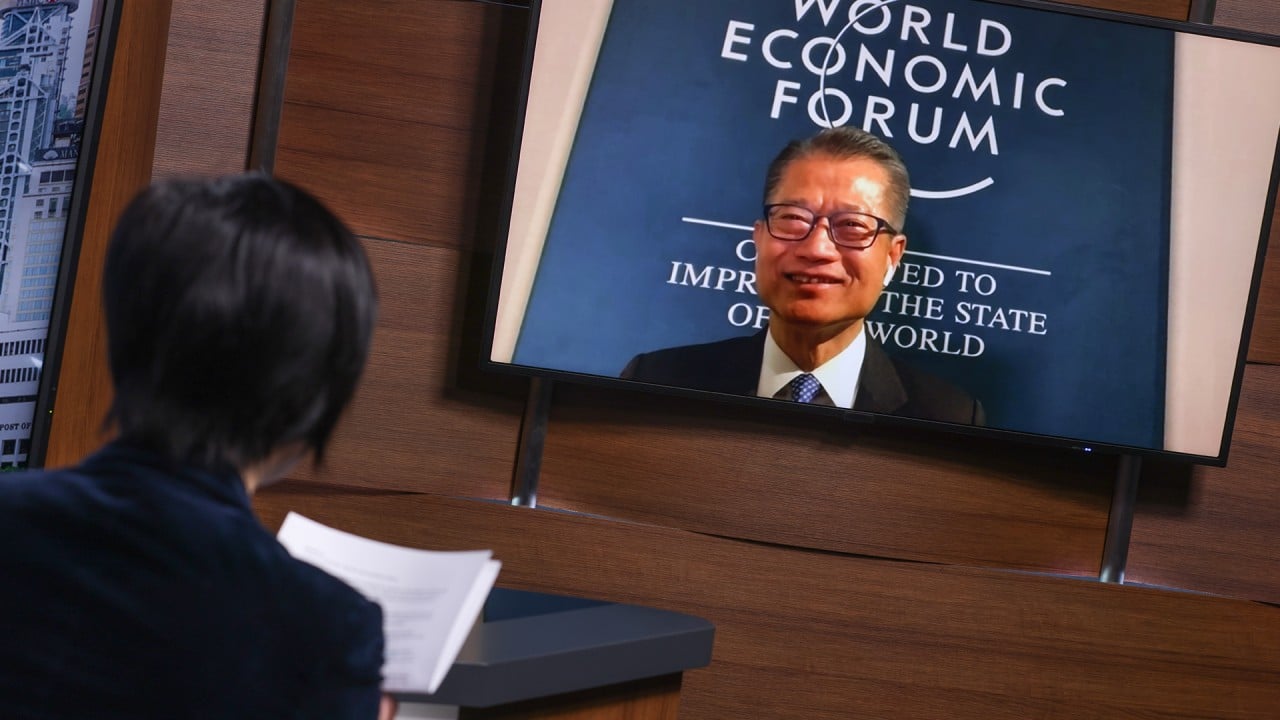
13 Apr Deutsche Bank prepares to seize Hong Kong, mainland China business upswing while rivals retrench during IPO, deal slump
Deutsche Bank is sharpening its focus on China business to capitalise on gaps created by the withdrawal of its investment banking rivals, betting on the world’s second largest economy to build on its post-Covid recovery momentum, according to top Asia-Pacific boss.
The bank, which first set up shop in China in Shanghai in 1872, or seven years after HSBC, has been strengthening its corporate finance division and enhanced its presence in the debt and equity capital markets over the past two years amid a slump in deal-making and stock offering, while peers including Credit Suisse imploded while Goldman Sachs and Morgan Stanley trimmed jobs.
“We know that many of our competitors are reducing capacity in this business, in Hong Kong and elsewhere,” Alexander von zur Muehlen, CEO for Asia-Pacific, said in an interview in Hong Kong. “That gives us a unique opportunity to operate in a kind of countercyclical way, and be strategic.”

UBS was reportedly looking to cut 90 jobs across its private and investment banking units in Asia, mainly in China, Hong Kong, Taiwan and Singapore. Bank of America in January announced around 20 job cuts in Asia, mainly affecting Hong Kong-based bankers and those who work on China deals.
Sooner or later, businesses in mainland China will rebound and Deutsche Bank wants to position itself to seize the moment, said von zur Muehlen, who is based in Singapore.
Hong Kong bankers have lots of free time, anxiety as deals slump, lay-offs jump
Hong Kong bankers have lots of free time, anxiety as deals slump, lay-offs jump
Deutsche Bank had 851 full-time staff in Hong Kong last year, versus 844 in 2021, according to its annual report. In mainland China, its headcount rose to 634 in 2023 from 553 in 2021.
Both markets, however, showed contrasting performance over those two pandemic years. Profit before tax fell to 74 million euros (US$78.7 million) from 121 million euros in Hong Kong. In mainland China, its profit surged to 131 million euros from 89 million euros.
von zur Muehlen emphasised the significance of its 152-year history of doing business in China, particularly in times of geopolitical uncertainty, adding that one should not get distracted by some issues that markets are facing at the moment.
There will always be a need for capital, as China continues to open up and pushes for a wider international usage of the yuan, he added. This creates an opportunity for Deutsche Bank to facilitate more cross-border activity from Hong Kong.
“Hong Kong has a unique position, it is the financial window to the world for China, both for inbound and outbound,” he said.
China last month set its growth target for 2024 at about 5 per cent, after the economy accelerated 5.2 per cent in 2023 from 3 per cent in the preceding year. Despite setbacks from weak consumption and high savings rates, there are also many booming areas within the economy, he noted.
Top sectors that are attractive to investors include electric vehicles, renewables, technology and innovation. China’s weaker currency at present benefits export-oriented industries.
“We all need to start understanding and live with the fact that China is not going to grow at the 9 or 10 per cent rate that we’ve had for decades before,” he said. “There are numerous countries in the world that would be thrilled to achieve 5 per cent growth.”
Deutsche Bank is positive on the outlook for inbound investments from the Middle East to China, particularly from sovereign funds in that region, said von zur Muehlen, who was also tasked with overseeing Germany and the Europe, Middle East and Africa region since last year.
Why people are at the heart of Deutsche Bank’s success in China and Asia-Pacific
Why people are at the heart of Deutsche Bank’s success in China and Asia-Pacific
Deutsche Bank expects more transactions between China and the Middle East and added the pipeline was growing. Middle Eastern investors are striving for diversification. They view China as a very strong and still rising economy.
The bank recently was one of the advisers on a record-breaking US$8.6 billion deal led by private equity firm PAG and Chinese property giant Dalian Wanda’s mall unit. It was the largest direct inbound investment from the Middle East to date.
“We’ve seen a lot of assets being repriced lower, whereas many stock markets in the western hemisphere are trading at all-time highs,” he said. “This is when the [Hong Kong] market starts getting attractive.”
For investments to go from the pipeline to solid transaction, they will require a time period of “stability and calmness politically, economically, and tendencies around property markets, not just in China”, he said. Then, assets in both Hong Kong and mainland China will appeal to investors, he added.
“China will come back and we are here for the long game,” he said. “I’ve never been worried about Hong Kong to begin with,” von zur Muehlen said. “People always talk negatively, [but] there’s no reason. Businesses can always be better. The last few years have been very quiet. But we’re seeing good signs.”

